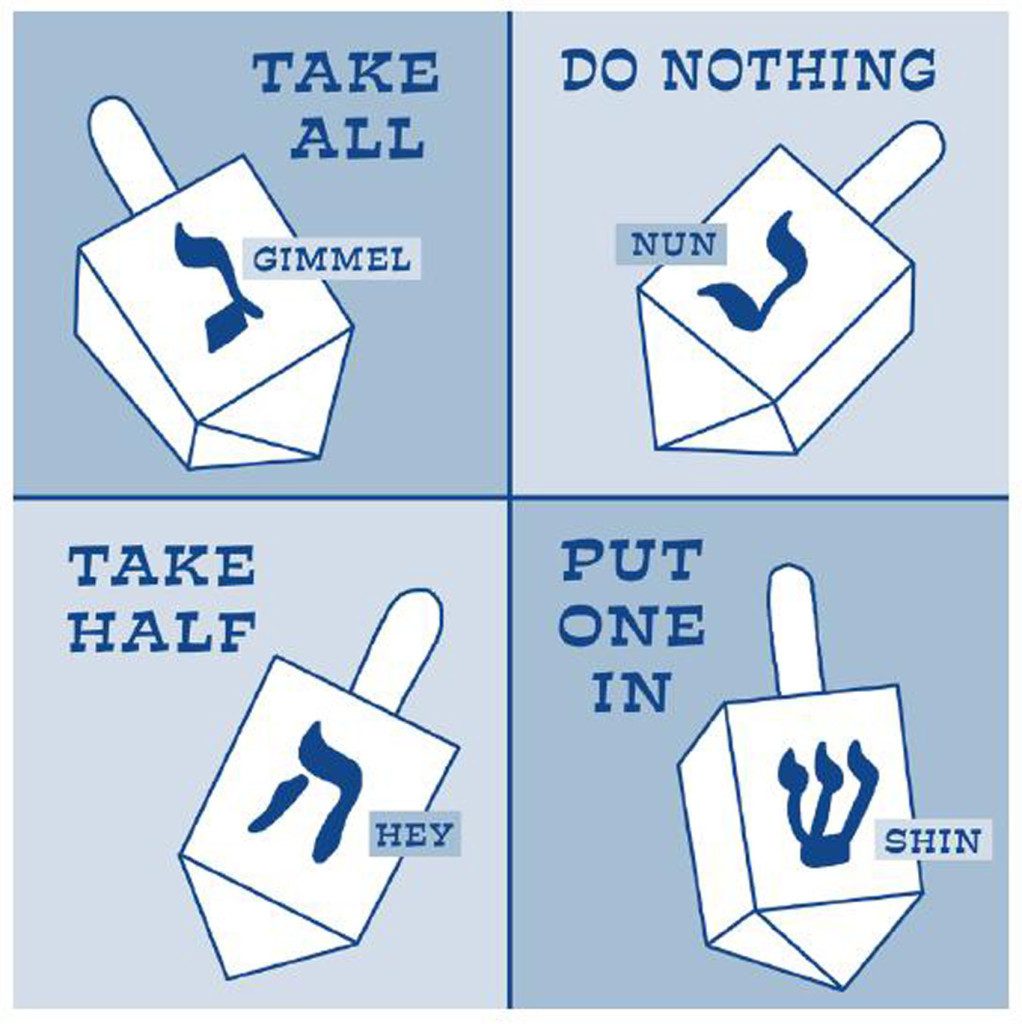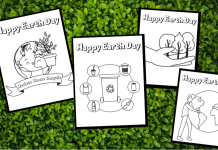A great way to teach children about the traditions and story of Hanukkah is through play and crafts. Here are three kid-friendly crafts to share the joy of Hanukkah with your children.
Classic Handprint Menorah
Make a handprint menorah every year to mark your child’s growth. Laminate the picture and you have a lovely gift for grandparents or use as a placemat at your Hanukkah meal.
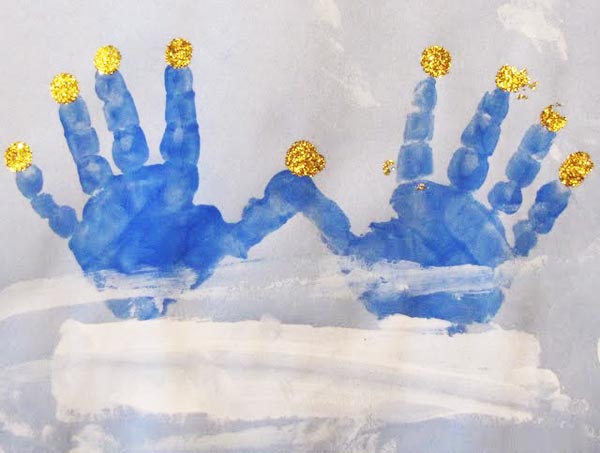
Materials:
- Paper
- Blue Paint
- Gold Paint
- White or other color to menorah base
Directions:
- Paint both hands with the blue paint and have your child make their handprints with thumbs touching.
- Paint gold “flames” or dip fingertips into gold paint.
- Paint a base for the menorah.
Popsicle Stick Star of David
This simple craft is easy for your toddler to do while also engaging older children. String a few together to make Hanukkah-themed garland.
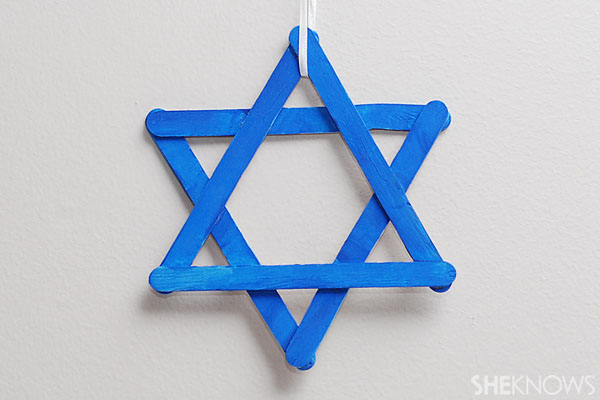
Materials:
- Popsicle sticks (6 per craft)
- Glue
- Paint, glitter, beads, etc.
- Ribbon
Directions:
- Paint the popsicle sticks and allow to dry completely.
- Show your child how a Star of David is really just two inverted triangles. You can have them practice their triangles on some paper while waiting for the popsicle sticks to dry. If your child is very young, you’ll want to glue the popsicle sticks into triangle shapes before decorating.
- Using three for each triangle, glue the ends of each stick and arrange into a triangle shape. You will need two triangles per craft. Once rutthese are somewhat dry, glue one triangle on top of the other (one with point up, one with point down). Allow glue to dry before decorating.
- Once you have a Star of David prepared for each child, they can decorate with glitter, beads, or more paint! Be careful when decorating as these stars are fragile.
- Once your Star of David is dry, tie a piece of ribbon through the top point of the star. Hang on your window or string together and make a garland.
Pencil and Paper Dreidels
A dreidel is a four-sided spinning top with a Hebrew letter on each side. It is used during Hanukkah to play a popular children’s game that involves spinning the dreidel and betting on which Hebrew letter will be showing when the dreidel stops spinning. Children usually play for a pot of gelt, which are chocolate coins covered in gold colored tin foil, but they can also play for candy, nuts, raisins – anything really!
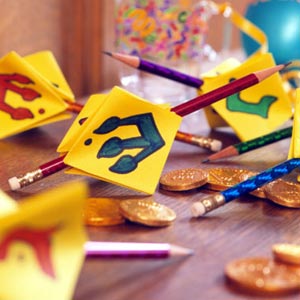
Materials:
- 8-1/2×8-1/2-inch square of paper
- Hole punch
- Marker
- Double-face tape
- Pencil
- Stapler
Instructions:
- Make dreidel shape. Fold the square of paper into quarters. Open up the shape. Paper-punch a hole in the center of the paper. Fold the corners of the square into the center. Flip the shape over, and fold the corners into the center again. Flip the shape over. Draw the Hebrew letters Nun, Gimel, He, and Shin on the four squares.
- Attach dreidel to pencil. Slip your fingers inside the four square pockets, and bring the corners together. Wrap a piece of double-face tape around the pencil about 2 inches from the sharpened end. Slip the pencil through the hole from the top of the paper shape, press the shape to the tape on the pencil, and then staple the underside folds together. Push the top four squares of the shape toward the pencil.
- Play the game.
How to play dreidel:
- Any number of people can take part in the game itself.
- Each player begins the game with an equal number of game pieces (about 10-15) such as pennies, nuts, chocolate gelt, etc.
- At the beginning of each round, every participant puts one game piece into the center “pot.” In addition, every time the pot is empty or has only one game piece left, every player should put one in the pot.
- Every time it’s your turn, spin the dreidel once. Depending on the outcome, you give or get game pieces from the pot:
– Nun means “nisht” or “nothing.” The player does nothing.
– Gimmel means “gantz” or “everything.” The player gets everything in the pot.
– Hey means “halb” or “half.” The player gets half of the pot. (If there is an odd number of pieces in the pot, the player takes half of the total plus one).
– Shin (outside of Israel) means “shtel” or “put in.” Peh (in Israel) also means “put in.” The player adds a game piece to the pot.







